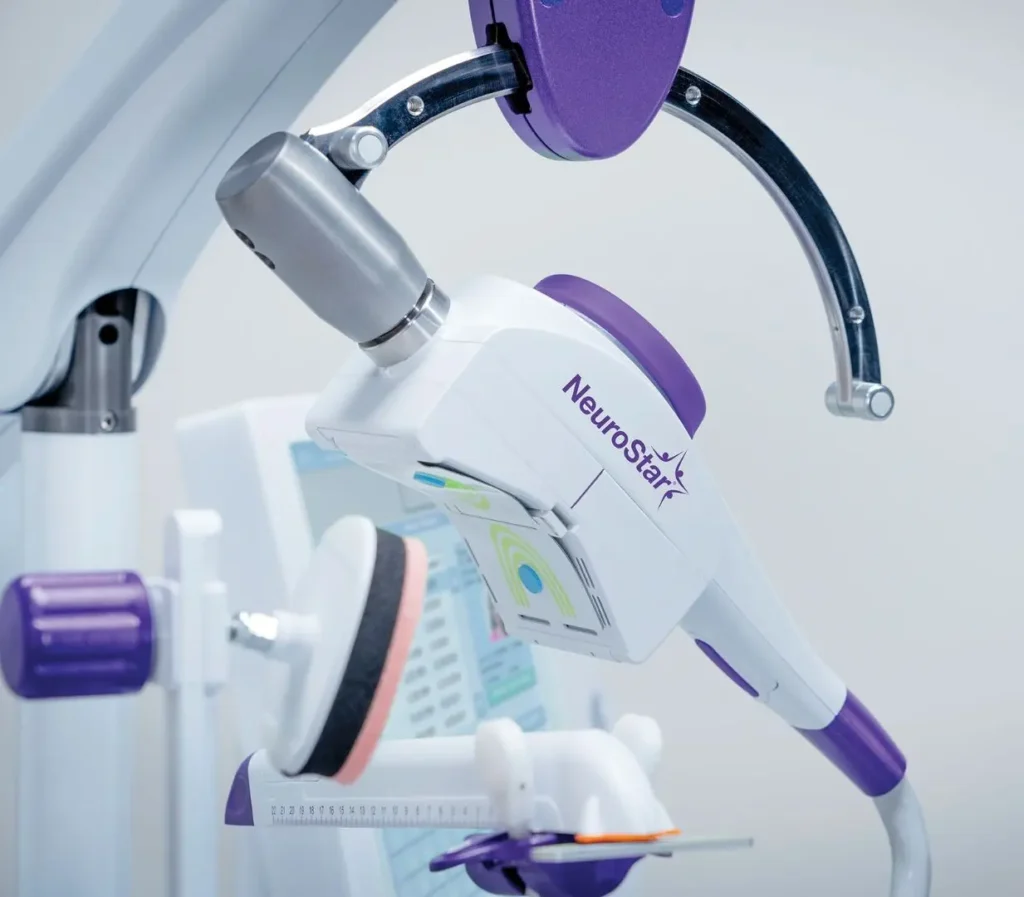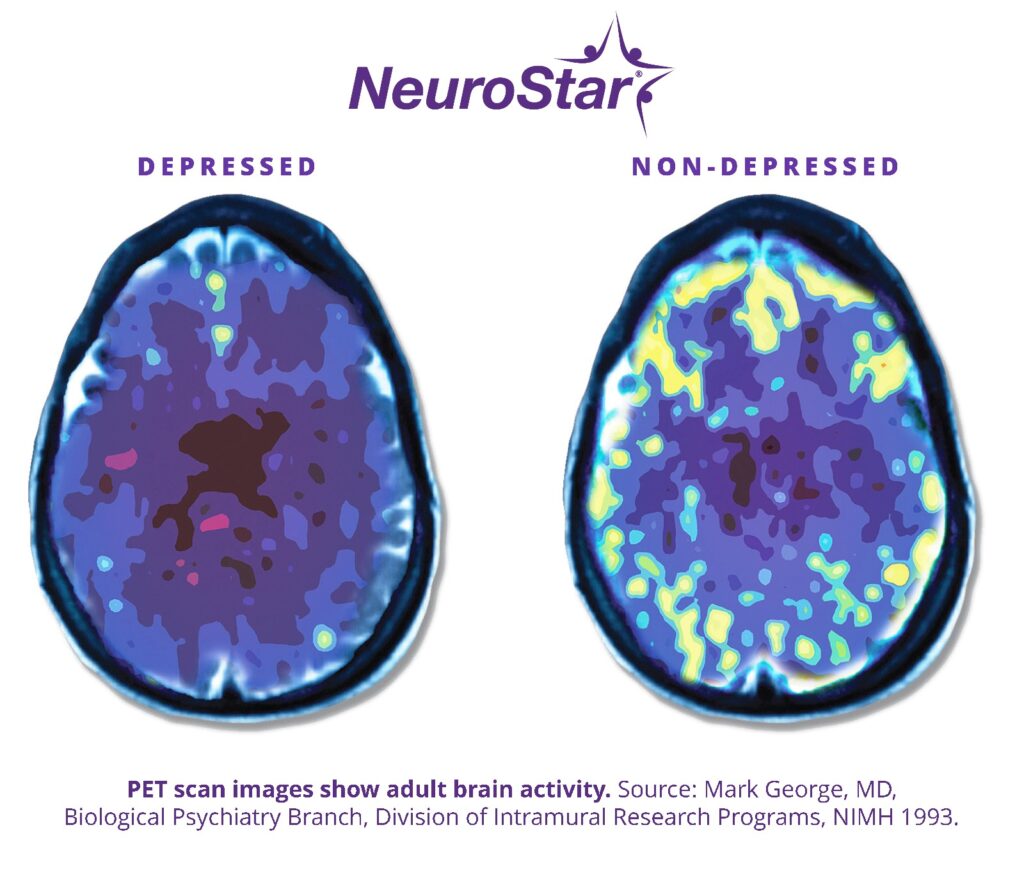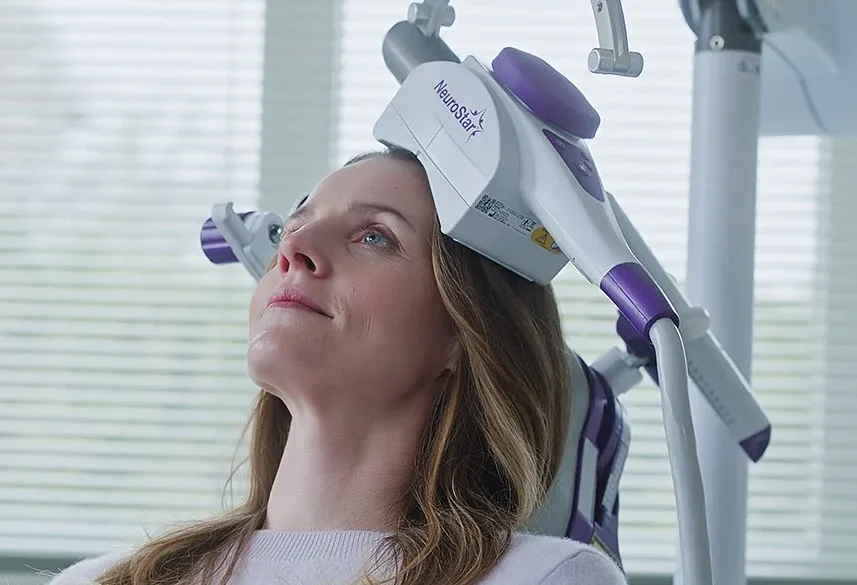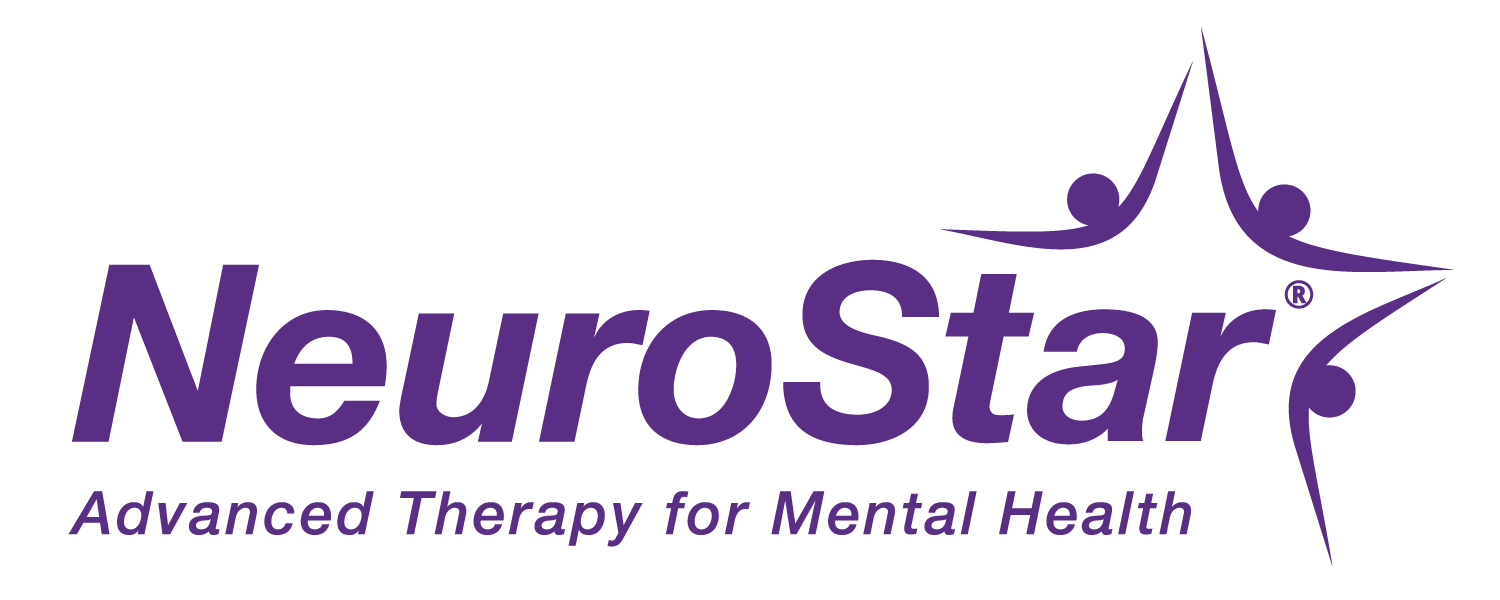TMS
Transcranial Magnetic Stimulation (TMS) Therapy is a safe and effective treatment that uses MRI strength pulses to treat the cause of mood disorders like depression. Unlike medication, which only treats symptoms, TMS Therapy strengthens the network in your brain that regulates your mood, and how you think, feel and act.
Inquire Now
Inquire Now
TMS
An In-Depth Exploration of How Psychoactive Drugs Interact with the Brain and Nervous System to Influence Emotions, Thoughts, and Human Behavior, Examining Their Role in Altering Neurotransmitter Activity, Modifying Cognitive Functions, Regulating Mood States, and Impacting Both the Treatment of Mental Disorders and the Understanding of Human Consciousness.


The Science Behind Transcranial Magnetic Stimulation (TMS) Therapy
Transcranial Magnetic Stimulation (TMS) uses gentle magnetic pulses to stimulate specific areas of the brain linked to mood regulation. This non-invasive, FDA-approved treatment helps restore healthy brain activity, offering relief from depression and other mental health conditions without the need for medication or surgery.
How SNBCare Does it
At SNBCare, we believe that every treatment journey should be personalized, supportive, and built on evidence-based care. Here’s what you can expect when starting
Initial Evaluation
Your journey begins with a thorough evaluation. Our experienced providers review your medical history, current symptoms, and past treatments to determine whether TMS is the right fit for you.
Treatment Planning
If TMS is recommended, we’ll create a customized treatment plan designed around your unique needs and schedule. We also handle insurance prior authorization, so you know your coverage and costs upfront.
Ongoing Monitoring
Over the course of your treatment (typically 36 sessions across 6 weeks), you’ll receive daily weekday sessions with continuous monitoring. Our team checks in regularly to ensure you’re responding well and adjusting as needed.
Advanced Treatment for Depression
TMS treatment for anxiety targets the dorsolateral prefrontal cortex, a key brain area linked to mood regulation. By delivering gentle magnetic pulses, it stimulates underactive nerve cells, helps restore healthy brain communication, and improves overall mood balance.
Because it’s non-invasive, drug-free, and well-tolerated, TMS has become a life-changing treatment for people who have run out of options but still deserve a path to recovery.

Safety & Expertise You Can Trust
At SNBCare, your safety is our top priority. We provide TMS therapy for anxiety with the highest standards of clinical expertise, ensuring every treatment is both effective and comfortable.
01
Qualified
Providers
Our team includes board-certified psychiatrists, psychiatric nurse practitioners, and licensed clinicians who specialize in advanced depression care. Each provider is trained and certified in administering TMS
02
Evidence-Based Care
TMS is FDA-cleared for treating Major Depressive Disorder in adults. At SNBCare, we follow evidence-based clinical guidelines to ensure safe and effective treatment tailored to your needs.
03
Monitoring for
Safety
We carefully monitor your response and adjust treatment parameters as needed. Common side effects, such as mild scalp discomfort or headache, are temporary and closely managed to keep you comfortable.
04
A Non-Invasive,
Drug-Free
Option
TMS does not require anesthesia or hospitalization. It allows you to remain fully awake and resume normal activities immediately after each session—making it a safe, outpatient-based alternative to traditional treatments
05
Personalized
TMS Care
Every TMS treatment plan is tailored to your unique needs. Our experts adjust each session for maximum comfort and lasting results, ensuring care that truly fits you.
Start Your Journey To Better
Mental Health
Book your personalized consultation today and take the first step toward healing with SNBCare’s expert team.
You May Benefit If You’re
Experiencing:

Adults with Treatment-Resistant Depression (TRD): The primary group who benefit from TMS are adults who haven’t responded to two or more antidepressant medications.
Adults with Treatment-Resistant Depression (TRD): The primary group who benefit from TMS are adults who haven’t responded to two or more antidepressant medications.

Individuals Not Responding to Medications: Patients who still experience persistent symptoms despite antidepressant use.
Individuals Not Responding to Medications: Patients who still experience persistent symptoms despite antidepressant use.

Those Intolerant to Medications: Adults who experience significant side effects from antidepressants and need a non-drug alternative.
Those Intolerant to Medications: Adults who experience significant side effects from antidepressants and need a non-drug alternative.

Adults Seeking Non-Invasive Care: TMS is performed in-office, requires no anesthesia, and allows patients to return to normal activities right after treatment.
Adults Seeking Non-Invasive Care: TMS is performed in-office, requires no anesthesia, and allows patients to return to normal activities right after treatment.
Key Benefits Patients Often
Experience:

Improved Symptom Relief: Many patients notice a significant reduction in depressive symptoms, even when other treatments haven’t worked.
Improved Symptom Relief: Many patients notice a significant reduction in depressive symptoms, even when other treatments haven’t worked.

Stabilization of Mood: TMS helps restore balance in brain circuits that affect mood, reducing cycles of sadness and hopelessness.
Stabilization of Mood: TMS helps restore balance in brain circuits that affect mood, reducing cycles of sadness and hopelessness.

Enhanced Quality of Life: Relief from symptoms allows individuals to reconnect with loved ones, pursue personal goals, and enjoy life more fully.
Enhanced Quality of Life: Relief from symptoms allows individuals to reconnect with loved ones, pursue personal goals, and enjoy life more fully.
Get your personalized TMS Consultation
now:
Fill out the form to schedule a TMS Consultation
FAQ's
TMS is a safe procedure. It is noninvasive, has little side effects, and has 83% response rate. The procedure is performed in-office by certified professionals. Our chosen avenue of treatment, NeuroStar Advanced Therapy, has positive results from two randomized, controlled trials, as well as one large real-world trial
There are typically 36 sessions over the course of treatment. Your first day in the chair will consist of a mapping session, where your provider locates your Motor Threshold, essentially the spot where the electromagnetic pulses will be most effective. After you are successfully mapped, you will immediately have your first treatment session. This first session will take about an hour. For the next 35 business days (Monday through Friday), you will have a 30 minute follow up treatment session. The process will take about six weeks in total
There is little pain reported when receiving TMS. Some patients report slight scalp discomfort where the coil rests against their head and may have a slight headache after the first few treatments. Most patients do not report either of these effects. The pulses may feel uncomfortable in that they are a foreign sensation in your brain that you have probably not felt before.
Little to no preparation is necessary. You should eat, drink, and take your prescribed medications according to your routine. You can pre medicate by taking an over the counter pain medication if you are prone to headaches. You may want to not wear makeup as you will have a thin adhesive strip taped to the forehead. A mirror is provided for patients who wish to fix their appearance after their session.
Most insurances cover TMS. After your initial TMS evaluation with your provider, the TMS coordinator will work with your insurance to obtain prior authorization. You will know of any financial responsibility (copays, deductibles, etc.) before sitting in the chair. There are also financial assistance programs available as well. For any billing questions, please feel free to reach out to the TMS Coordinator and they will be happy to assist you.
No, Transcranial Magnetic Stimulation (TMS) is not the same as Electro Convulsive Therapy (ECT.) There are no shocks, zaps, or electrification of any kind involved in TMS
No, it is preferred that you continue to take any medications as part of your current regimen throughout your entire treatment course of TMS.
TMS is currently FDA cleared for the indication of adults with Major Depressive Disorder (MDD) and as an adjunct for adults diagnosed Obsessive Compulsive Disorder (OCD). We currently only treat MDD, but will soon be expanding as the FDA allows.

